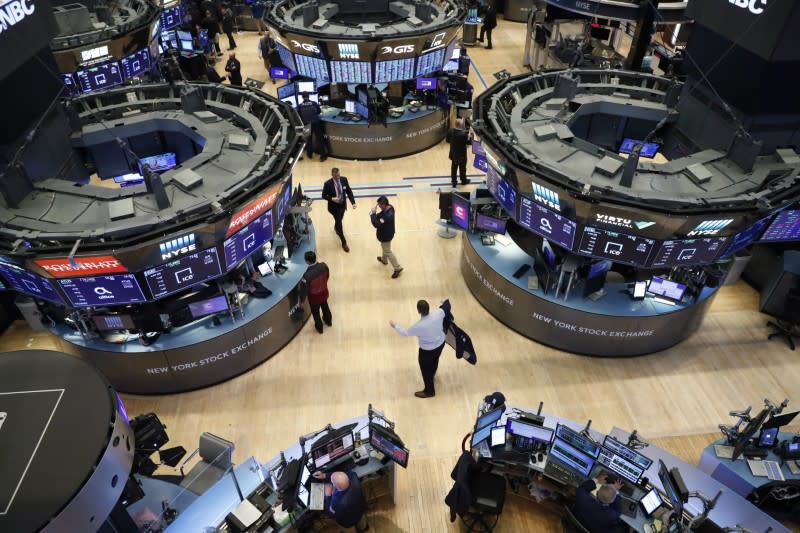World's top debt funds lose billions in coronavirus rout

By Simon Jessop, Kate Duguid and Carolyn Cohn
NEW YORK/LONDON (Reuters) - Coronavirus has hit the world's biggest debt funds, which have lost billions of dollars in value, Morningstar data shows, while one smaller fund shed half its value in a little over two weeks.
Markets have lost trillions of dollars in value over that time at a record-breaking pace, laying bare structural weaknesses after a decade of central bank easy money and fuelling fears of mass fund redemptions.
After the collapse of Lehman Brothers during the financial crisis in 2008, spreads on European investment grade debt took 45 days to double. In March, that doubling took just 19 days, analysts at Bank of America said in a note.
Despite central bank pledges of massive economic and monetary stimulus, there is little sign of confidence returning, particularly in corporate credit.
Investment grade funds saw outflows of $35.6 billion (30.5 billion pounds) in the week to Wednesday, with taxable bond funds shedding $55.9 billion, the largest weekly outflow on record according to Lipper data dating back to 1992, as markets continued to be roiled by the coronavirus pandemic.
It is "an unbelievably big outflow from investment grade. Investment grade is catching up to high yield in terms of percentage outflows. To me, until this week, investment grade also looked rich relative to other risk assets," said John McClain, portfolio manager at Diamond Hill Capital Management.
The director of IMF Monetary and Capital Markets warned this month that any sudden decision by investors to sell shares in credit-focused asset managers and exchange traded funds (ETFs)could pressure them to sell riskier assets quickly.
Worst hit among the world's biggest funds was the actively managed $81.4 billion PIMCO GIS Income fund, down 7.7% in the month to March 17, data from Morningstar showed.
The world's biggest fund, the $269 billion Vanguard Total Bond Market Index fund, meanwhile, was down 2.4%.
For an interactive version of the graphic, click https://fingfx.thomsonreuters.com/gfx/editorcharts/GLOBAL-BONDS-FUNDS-PERFORMANCE/0H001R8HJCET/index.html
Certain other funds were even harder hit, particularly those with share classes which were hedged or based in currencies other than the dollar.
Neuberger Berman's Emerging Market Debt Blend Fund hedged and in pounds was down 54.8% in the month, while Pimco's GIS Capital Securities Fund, hedged and in Brazilian Reals, which invests primarily in the subordinated debt of banks and other financials, was down 29.3%.
A spokeswoman for Neuberger said: "The performance reporting of this particular share class was distorted due to a February 2020 client redemption. The overall fund strategy has a year-to-date return of -11.86% as of March 19, 2020.”
For an interactive version of the graphic, click here https://fingfx.thomsonreuters.com/gfx/editorcharts/GLOBAL-BONDS-FUNDS-PERFORMANCE/0H001R8HKCEX/index.html
(Reporting by Simon Jessop; Editing by Alexander Smith, Rachel Armstrong and Louise Heavens)

 Yahoo Finance
Yahoo Finance 